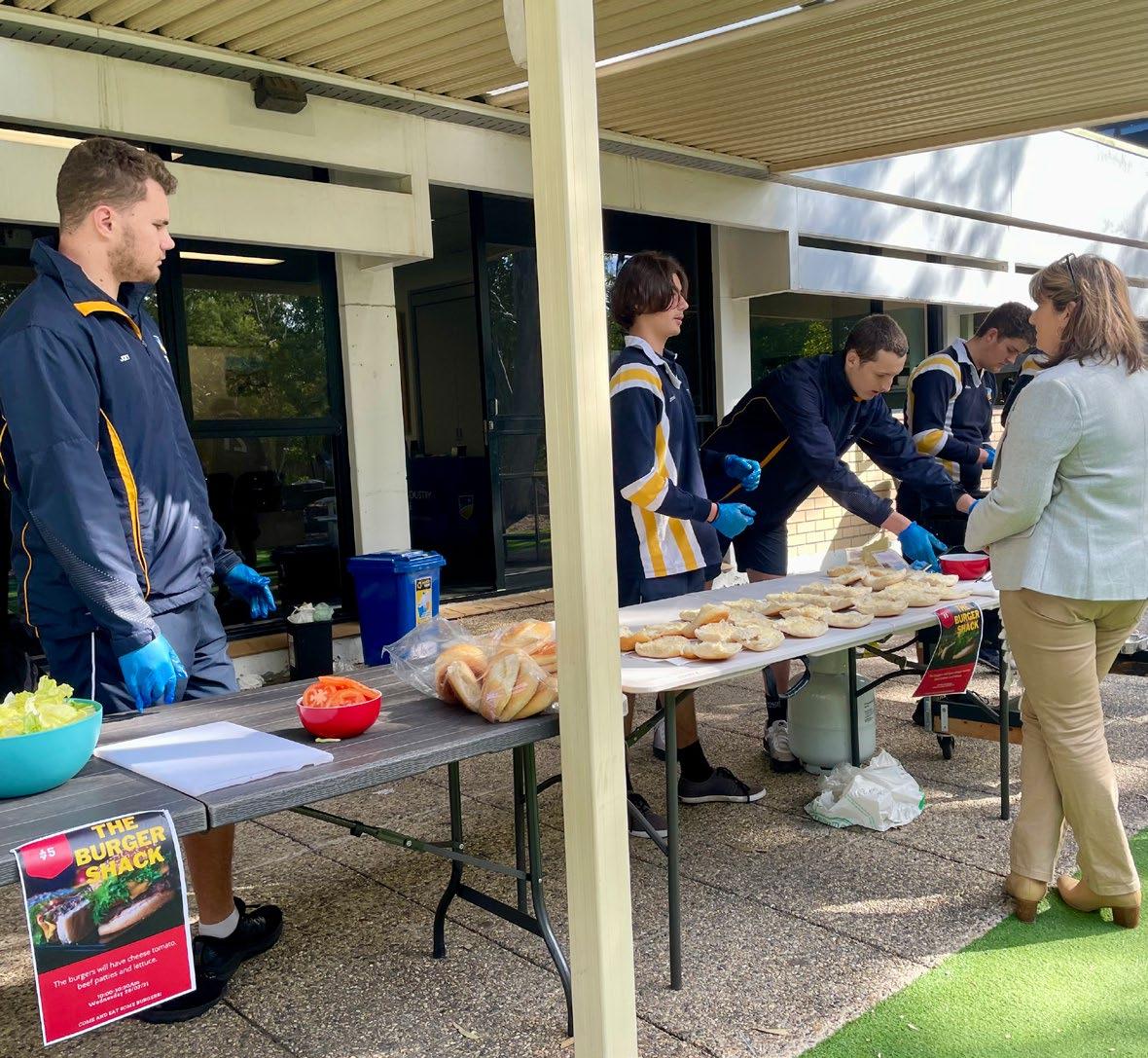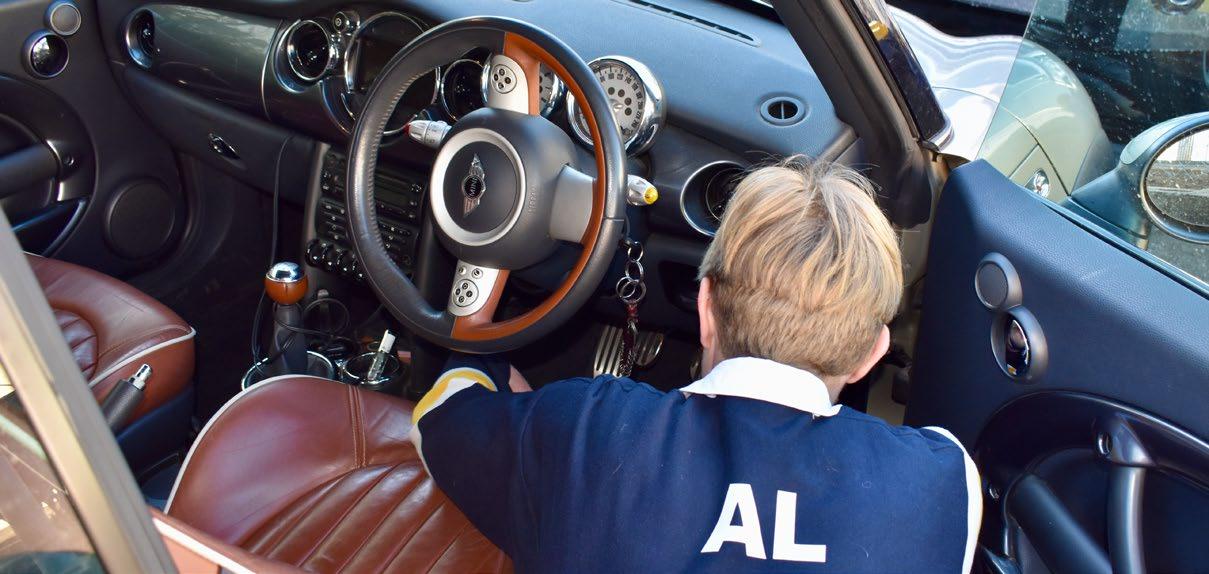
3 minute read
MICROBUSINESS
blueprint australian industry trade college
Microbusiness leads to maximum benefits inside and outside the classroom
Advertisement
The AITC has a strong focus on preparing young people to authentically connect with the ‘real world’. In 2021, across all five campuses, the Year 12 cohort have undertaken a Certificate III in Business and unleashed their entrepreneurial and business skills. One of the core projects in the delivery of the qualification required is that our seniors develop and run their own microbusiness. Key criteria of the microbusinesses was to operate without loss and focus on raising money for a charity. All profit from the campuses (over $3,000) was donated to the New Hope Cambodia Fund. The AITC has a long history with New Hope Cambodia – a charity providing education, food and housing to families from some of Siem Reap’s most underprivileged areas.
Our young people ran numerous successful microbusinesses in different teams across all campuses. Groups created the best business ideas to maximise reach and create profits for charity. Not only did our young people learn how to run a business but they also put their cooking skills, car detailing and handyperson skills into practice. Groups found that cooking a hearty breakfast or lunch provided a successful business pathway. Sunshine Coast and Redlands organised a successful ‘Wash ‘n Go’ carwash – inside and outside as well as a wheel polish.
Melissa Moxley, Ipswich Team Leader, says students’ attitudes towards running a business developed from their entrepreneurial activities, and learnings developed throughout their Year 12 journey.
“It was an exciting project for our young people as they completed their Certificate III in Business. Creating a microbusiness in small groups, with a focus on entrepreneurship, requires different skillsets.” The subjects at the AITC are not silo subjects— they are used across platforms in real world situations, in both a professional and personal manner. Creating a microbusiness allows young people to further develop math skills, writing skills, it also looks at promotion, how to innovate as well as learning to work in a team environment with different personality types.
According to the Foundation for Young Australians’ New Work Order research, “enterprise skills are just the skills young people need most to thrive in an uncertain future. The next generation will likely navigate 17 jobs across five different careers. By teaching enterprise skills, a young person can transition more easily from education to work.”
Other benefits for learning about a microbusiness:
• provides services and products tailored to the local community; • better prepares students for the future of business in industry; • trains students to be optimistic with a focus on solutions; • explores commercial innovation; • coming up with a business idea, validating it, and seeing it through provides a unique, fulfilling experience for young people; • entrepreneurship provides practical and hands-on experience which makes for great project-based learning.
FOUNDATION FOR YOUNG AUSTRALIANS
The New Work Order Series
VIEW SPECIAL REPORT

“Our Year 12s had to be creative as they set about running their business without loss. Profits from all five campuses will be donated to our International Services Project — New Hope Cambodia. New Hope Cambodia provides education to children and young people from some of the poorest families in Mondul Bai village, Siem Reap. Many students come from families living on less than $100 a month.”




DELIBERATELY DIFFERENT.



